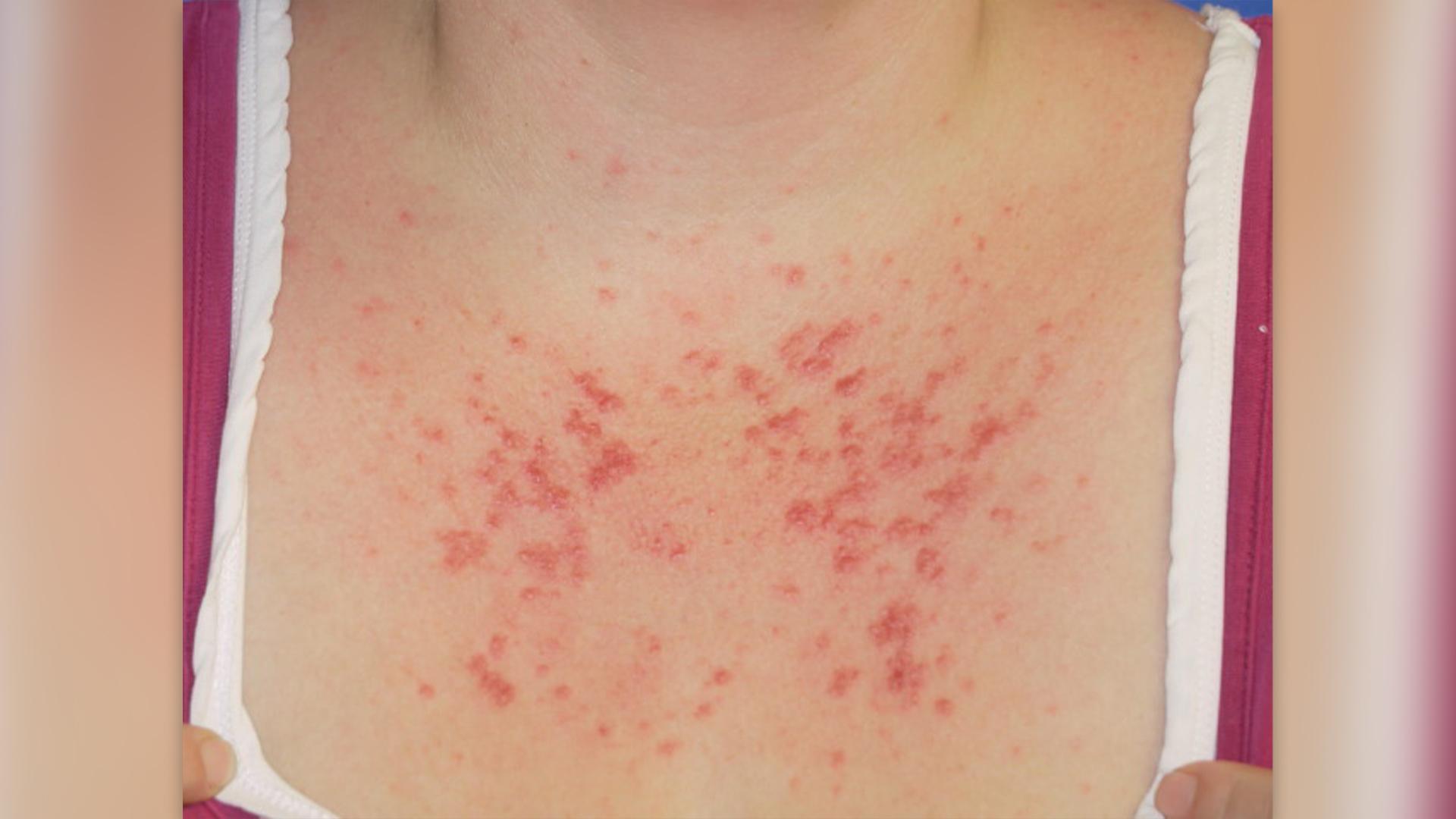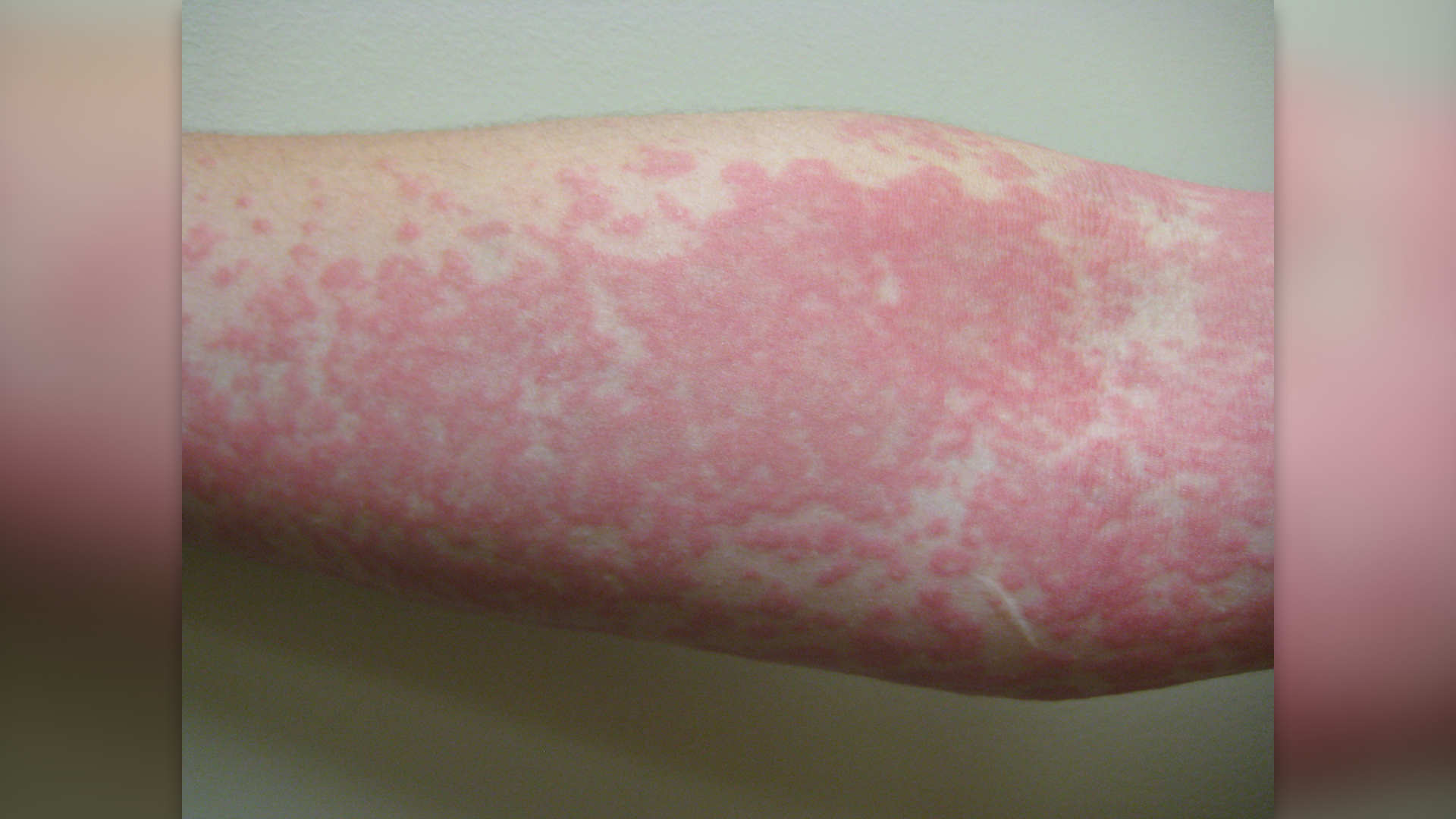
Basking in the sun can cause a number of health conditions, from sunburn to skin cancer. But can you be allergic to the sun, too?
The short answer is, yes, you can have an allergic reaction to ultraviolet light from the sun. A sun allergy produces an itchy rash that may present as red bumps, red patches, blisters or hives on the sun-exposed areas of the skin, Dr. Debra Jaliman, a board-certified dermatologist based in New York and a member of the American Academy of Dermatology, told Live Science.
However, the term "sun allergy" is an umbrella term that encompasses several immune responses to ultraviolet light. Some sun allergies may be linked to a person's genetic make-up, while others can develop in response to certain chemicals from medicines or cosmetics, according to Harvard Health.
Related: What causes allergies?

Polymorphic light eruption (PMLE) is one of the most common forms of sun allergy. PMLE may affect 1 in 10 people worldwide, but it tends to be more prevalent in the Northern Hemisphere, according to a 2022 meta-analysis published in the Journal of the European Academy of Dermatology & Venereology. PMLE usually manifests as a rash that appears within two hours of sun exposure. This condition typically affects more women than men, and its symptoms often begin in early adulthood. Scientists don't know what causes PMLE, according to the medical resource StatPearls.
In rare cases, PMLE may be hereditary. This form of sun allergy, called Actinic prurigo, predominantly affects Native American populations in the northern, southern and central U.S. The symptoms of Actinic prurigo often begin earlier — and are more severe — than in typical PMLE, Harvard Health noted.
Another common form of sun allergy is photoallergic eruption, a skin reaction triggered by an interaction between sunlight and chemicals either ingested or applied to the skin. This blistery rash may take one to two days to develop and can spread to areas of the skin that were not exposed to the sun, according to Harvard Health. Photoallergic eruption "can occur in people of all skin types, but light-skinned individuals who are more sensitive to the sun are more likely to get the symptoms," Jaliman said.
Photoallergic eruption is often caused by synthetic chemicals found in topical cosmetics, including musk fragrances and benzophenones, an ingredient in some mineral sunscreens. But natural substances, such as lime juice, can trigger it too, she said. A number of prescription medications, including "certain antibiotics, such as tetracycline and ciprofloxacin; sulfur-based drugs, like hydrochlorothiazide [a diuretic]; and isotretinoin, a medication used to treat acne," can also cause photoallergic eruption, Jaliman noted.

Solar urticaria is another form of sun allergy, although most doctors consider this condition rare, according to Harvard Health. People with solar urticaria tend to develop hives and bumps on the skin immediately after being exposed to sunlight. It is not known what causes this condition, according to StatPearls.
Jaliman emphasized that anyone can develop a sun allergy, even if they have never had an adverse reaction to ultraviolet radiation. "For example, you could take a certain antibiotic for years, but then one day develop a photoallergic reaction to it," she said. "Unfortunately, [these] allergic reactions can develop over time."
This article is for informational purposes only and is not meant to offer medical advice.
Ever wonder why some people build muscle more easily than others or why freckles come out in the sun? Send us your questions about how the human body works to community@livescience.com with the subject line "Health Desk Q," and you may see your question answered on the website!







